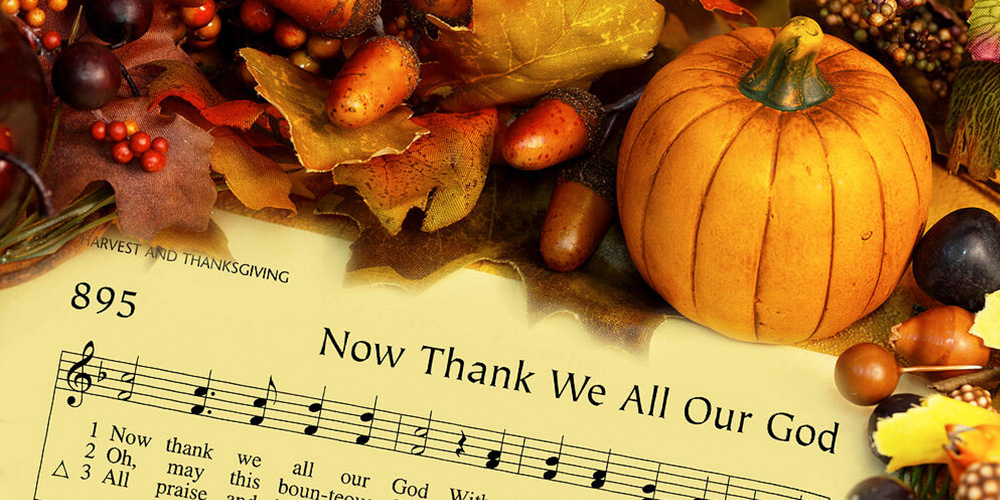 |
In 1617 Martin Rinkart, a Lutheran pastor, returned to his hometown of Eilenburg, Saxony, to serve as archdeacon—just as the Thirty Years’ War (1618–1648) was about to begin. Since Eilenburg was a walled city, it became a haven for political and military refugees. Rinkart soon endured the horrors of quartering soldiers in his home and the frequent plundering of his meager household goods.
Things got worse. The Swedish army ringed the city to starve it, and the plague worsened. In 1637, eight thousand people in the city died—including the vast majority of the town council, many children, clergymen from the neighboring congregation, and Rinkart’s wife. Rinkart was left alone to do the work of all the clergy in the town. He performed 40 to 50 funerals per day—a total of 4,480.
Things got even worse. After the plague, famine gripped the town, and “30 or 40 people might be seen fighting in the streets for a dead cat or crow.” Rinkart sacrificed everything to help, keeping only the most meager rations for his own family. In time, he mortgaged his future salary to buy bread and clothes for his children.
In 1630 Rinkart penned the hymn, “Now Thank We All Our God.” . . . at a time you and I would likely label a waking nightmare!
Things got still worse. The Swedish army demanded a ransom of 30,000 thalers from the city. Rinkart risked his life by going to the Swedish general and begging for mercy. There was none. So he returned to town and said, “Come, my children, we can find no hearing, no mercy with men. Let us take refuge with God.” Rinkart fell to his knees and pleaded so earnestly in prayer that the Swedish general heard about it and lowered the ransom to 2,000 florins.
Despite all this, in 1630 Rinkart penned the hymn, “Now Thank We All Our God.”
Yes, you read that right. In 1630! At a time you and I would likely label a waking nightmare! Soon Lutheran families were singing Rinkart’s hymn as a table prayer. In 1648, the year in which the Thirty Years’ War ended, this hymn was sung at a national celebration of peace. In 1649, Martin Rinkart died.
As Thanksgiving approaches, are you as humbled by Rinkart’s story as I am? Why? Because this year I haven’t always been too excited about belting out another rousing chorus of “Now Thank We All Our God.” Too often I’ve felt more like muttering a verse of “I Walk in Danger All the Way.” Yet I have not seen mobs in grocery stores fighting for dead cats.
This Thanksgiving you and I will do far better to confess with the prophet Habakkuk, “The fig tree may have no buds. The vines may have no grapes. The olive tree may fail to produce. The fields may yield no food. The sheep may be cut off from their flock, and there may be no cattle in the barns, but I will delight in the Lord and rejoice in God who saves me” (3:17,18).
That’s what Martin Rinkart did when his world was falling apart around him! With his eyes fixed on eternity and his heart grounded on the Lord’s grace, he sang,
Now thank we all our God
With heart and hands and voices,
Who wondrous things has done,
In whom his world rejoices,
Who from our mother’s arms
Has blessed us on our way
With countless gifts of love
And still is ours today.
(Christian Worship 1993 610:1)
The Scripture references used in this article are from the Evangelical Heritage Version.
Author: Glenn Schwanke
Volume 108, Number 11
Issue: November 2021
- Changing hearts
- Mission dreams
- A new open door
- Your greatest joy
- Quick to listen
- Rest on the Rock
- I will do what I can
- Water the seed: Ministry in the public school
- Out from the shadows
- Jesus’ hands are never tied
- My church family
- With you always
- Build others up
- On mission statements and missions
- You are good to go
- Sound the alarm
- Pray, Christian, pray
- Now thank we all our God!
- A daily walk with our Shepherd
- Mind your own business
- A hymn for all ages
- Sunshine and rain
- Perspective
- Sunk without a trace
- All I want for Christmas
- Accept the challenge
- Get busy living
- The Lord, our shield
- Our desperate need
- Not just the capital of Rhode Island
- On grief and grieving: A Christian perspective
- Embracing a double standard
- Judgement-free zone
- Frogs in heated recliners
- An easy question?
- Drowning in a sea of bad news






